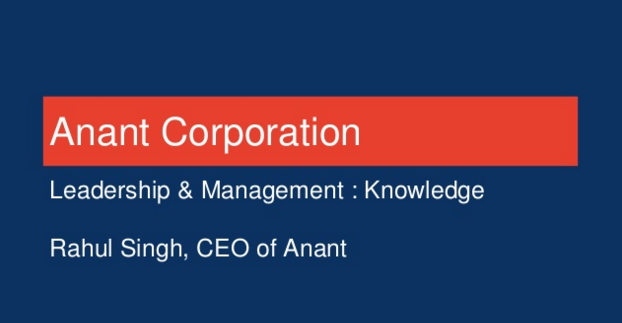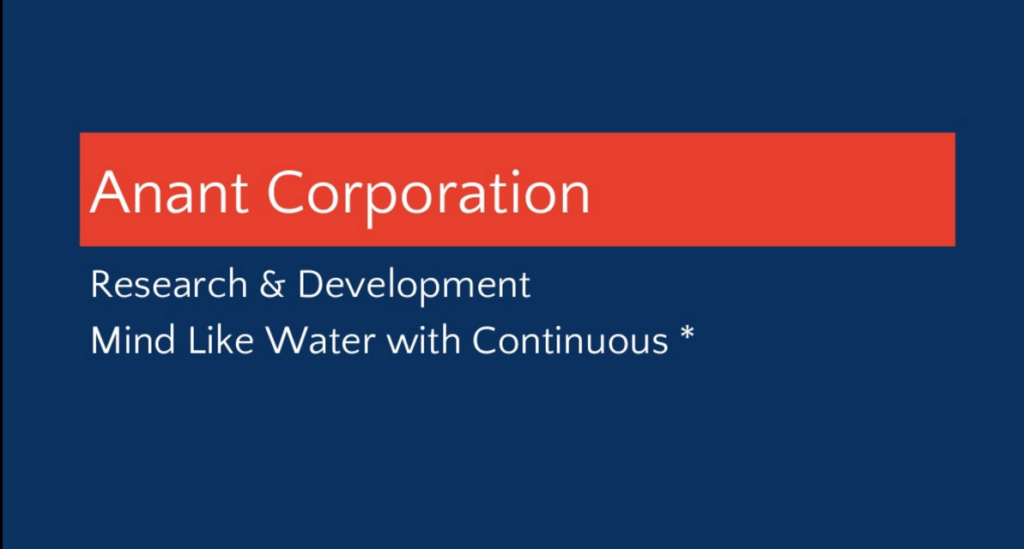Productivity has never been in more demand, and productivity is most often simply a by-product of proper focus. We need focus for ourselves, focus from our co-workers, focus from our friends, and focus from our family (especially those little ones always stuck to their screens nowadays!) Because proper focus is perhaps the biggest indicator of productivity, anything undermining it can truly de-rail your efforts. This first part of this two-part series will cover six actions that you can take to become more productive.
1. Overcoming the Fear of Failure
A lot of people have a hard time starting work on potentially productive endeavors because in the back of their minds they are afraid that they will ultimately fail. It’s important to get over that fear and perhaps the best way to do so is to adopt a mindset of incremental improvement. Most of the time, when you set out to work on something that has the potential for failure, you can feel hindered by the prediction that you might totally flop at it.
However, once the work begins, that feeling can quickly subside. Even if it doesn’t by the start of the work, once you are finished, you’ll be able to expand and improve upon something that is already existing. To adopt this kind of mindset it’s very important for you to realize that any successful body of work must go through revisions and improvements. Simultaneously, you have to let go of perfectionism. If you’re always (keyword: always) aiming to complete a perfect work before it’s out in the open, you are slowing yourself down. Most of the time, having something out there that people can see, criticize, and provide feedback on is paramount towards improving whatever you’ve done and becoming more and more confident of overcoming the fear of failure.
I like to think of these quotes whenever I feel stuck due to the reasons above:
- Better done than none.
- You can always improve it.
- Don’t stick it to your ego, let it stand or fall on its own.
- Failure is necessary, it comes with the territory.
Also, if the task is too large, and thus the potential for failure is as well, break the task down into smaller parts, with smaller risk and weight of failure.
2. Removing Distractions
Everything is vying for your attention..no really, it is. In the age of “if it’s free, you’re the product” and extreme levels of subtle online persuasion techniques (if you have nothing else you get out of this article, and it’s too long to read, I do suggest you watch the aforelinked video, it’s informative) it’s more important than ever for you to realize that one of the reasons you have so much distraction to deal with is because you’re literally swimming in a pool of carefully crafted persuasion campaigns that are engineered by some of the smartest and most-well staffed companies in the world. These companies profit from your attention, and they need to compete for this attention against other companies of the same ilk. Luckily for you, this is one of the easiest things you can address.
When you’re focusing ditch the non-essential electronics. Hide your phone if you don’t need it, or perhaps have specific times during the day where you have your phone available. Your mobile device is most likely the number 1 source of distraction in your life. I suggest this time tracking app for iPhone users, unfortunately, I don’t know which Android app would be good, but this article may give you some pointers.
If people around you are distracting you and you really aren’t able to find a quiet secluded room to get stuff done, try wearing a hoodie, ear-plugs, or maybe even a headset so that people passing by can prominently see that you don’t want to be bothered.
There’s really a sea of things to deal with when trying to remove distractions in your life. But here’s a quick-fire list that can help.
- Hide your phone or have set times when you check it.
- Disable notifications from all non-essential apps.
- Track how much time your spending on your phone.
- Clear your desk.
- Tell others that you are in DND (do not disturb) mode when you need to get real heads-down work done.
- Don’t let important non-work related errands drag on, they’ll distract you from work. Address them on your off time.
3. Prioritizing Yourself
You will be more focused when you internalize that the hard work you do will directly reflect on who you are, and who you grow to be as a person and professional. When you chose not to focus, you do your future self a great disservice.
People can often end up not being productive when they feel as if whatever they are working towards is not worth their time. However, you have to keep in mind that whenever you work, you are essentially training yourself to be better, and the first person you rob of growth when you waste your time is yourself.
This is not to say that you should stay at places of employment that don’t align with your values, but simply losing all focus as you see your tenure at a certain employer dawn is a waste of your time.
4. Prioritizing Your Team’s Goals
A helpful way to get over a productivity slump is to find work where you can truly create something. A project that delivers a certain long-lasting product or service that will continuously become improved is a good way to channel your efforts.
Now, it’s understandable that that opportunity won’t always present itself. In that case, perhaps try achieving this effect through a hobby or product (actual physical product, a blog, a book, a garden, anything that can last) that you’re building on the side in collaboration with other people. This will spill over into other areas of your life and your productivity across the board will soar.
If you find a way to truly believe in what you’re working on, the sky is the limit, because you can channel your energy into focusing on building something with a grander goal.
5. Too Much Organization or Too Little
This issue will manifest itself in both the environment you’re in and in the environment, you create for yourself. The environment you create for yourself is entirely under your control, the environment you’re in, not so much, but you can still work with it.
When there is too much organization, one usually ends up feeling stuck amongst the myriad of various tasks that need to be done, meetings attended, notes taken, labels given, timesheets submitted..etc. Your workplace hasn’t worked to make your life easier and instead has decided to perhaps over-organize or under-organize to the extent that the employee has to bear the brunt of this overhead.
The way to tackle this issue is simple. You must prioritize, and if a simple written to-do list is what’s required then do that. There’s a ton of ideas out there for how to get work done, but the simplest way I’ve found, thanks to Warren Buffet, is through The Story of Mike Flint.
The Mike Flint strategy boils down to these essential steps
- Write down the next 25 goals you need to accomplish
- Circle the 5 most important ones
- Complete them
- While simultaneously avoiding doing any work on the remaining 20
6. The People You’re Around
One of the more accurate generic life quips out there is that “you are the average of the 5 people you spend the most time with”, and it couldn’t ring truer when it comes to being a productive person. One of the easiest ways to multiply your productivity is to literally sit side by side with someone who you know gets a lot of work done. You’ll be able to feed off of their momentum and drive. This is not to say that you’ll all the sudden become the effective taskmaster you wish to be, but it will certainly help in your path to that.
Make two lists.
- On one list, list the top 5 most productive people in your circle.
- One another list, list the top 5 lest productive people in your circle.
- Set up a work jam session at a coffee shop or co-working space with people from the first list. Spread these sessions over a few weeks.
- Rinse and repeat.
If you don’t have many people who you know that are productivity stars I recommend joining a productivity-focused meetup and getting to know some of their members.
Closing Thoughts
There are countless ways to increase your productivity. Really, the most important thing is that you find a couple of such ways and stick with them. See how the results pan out, and if you need to adjust your trajectory, do so. Make sure, not to get trapped in the dreaded endless productivity hack seeking cycle where you jump from one article to the next trying to find the magic elixir to becoming a to-do list wrecking machine. There is no such thing out there, there are different methodologies and approaches, but at the end of the day, once you have the basics down, other methods start only giving you marginal amounts of benefit.
Good luck! If you’re reading this you may be feeling good about all the things you’ll accomplish, but actually, you haven’t really done anything yet. Use that energy to push yourself forward and get that first thing slashed off your to-do list.
PS: Give yourself a break too. A good amount of science backs up the benefits of taking breaks while working. Daniel Pink’s latest book, When: The Scientific Secrets of Perfect Timing covers this subject thoroughly. Take a peak at what his book is about in this NPR interview transcript.
Have any feedback or questions? Interested in doing a guest blog post? Let me know at arturs@anant.us or @_AOG.
Photo by Chase Clark, Ryoji Iwata and Aidan De La Paz on Unsplash






